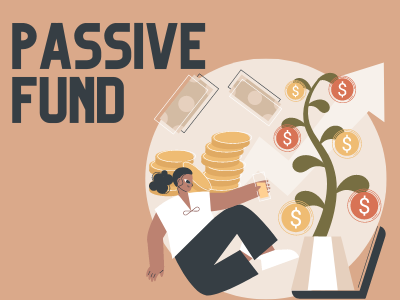Listen to this article
Index funds and ETFs are cheaper mutual fund offerings and hence have low margins. But despite that fund houses have been launching passive funds in heaps. In fact, at the recently held Cafemutual Passives Conference (CPC) 2022, top executives of several AMCs were very vocal about passives being their priority.
So, why are fund houses so keen on passives?
There seems to be a consensus among MF officials that India is moving towards an 'active+passive' future and they want to be prepared for it.
"Both (active+passive) will co-exist. There is tremendous opportunity for both to grow," MD & CEO of HDFC MF, Navneet Munot said at CPC 2022, adding that HDFC MF will be coming out with a number of ETFs and index funds in the near term.
"There are two kinds of investors. One category wants market beating returns and is comfortable with the downside risk associated with active funds. Then there are passive investors, who do not want to miss out on market returns in pursuit of alpha. As a manufacturer, our aspiration is to build solid funds on both the sides. And it is upto the distributors and investors to choose," said Swarup Mohanty, CEO of Mirae Asset MF.
Sameer Desai, National Lead ETF Retail, Nippon Life India AMC said that the future may belong to passives given that it has several advantages over active funds. "Efficient asset allocation is only possible through passives. Active fund cannot be a representative of an asset class like the way indices are. I believe that core part of every portfolio should be passive as the only return you can capture consistently is the index rate of return," he said.
Desai's belief in a passive future is also based on the fact that it is increasingly getting difficult for active fund managers to generate alpha. "In an increasingly professionalised market, if a few managers outperform, others are going to underperform," he said.
AMCs’ focus on passives is also due to the fact that unlike in passives, mutual funds can launch only a limited number of schemes on the active side.
"Post categorisation, there are only a limited number of active funds that can be launched. However, the scope for innovation is unlimited on the passive side. You can form an index for every investable universe," Mohanty said.
Koel Ghosh - Head of South Asia, S&P Dow Jones Indices feels that challenges in generating alpha has led to rising popularity of passives among manufactures. “Globally, we are seeing a trend. Largecaps have reached some efficiencies and active funds are finding it difficult to outperform the benchmark. In the last 2 years, midcaps are also starting to struggle.”
Ghosh points out that there is no fund manager bias in index investing. “In US, the persistency is only 27%. On the other hand, one of the things which index providers do is publish their methodology in clear script on their website. You know what you are expecting and you know the strategy.”
On actives, Munot expects active funds to make a strong comeback across the globe amid a growing perception that they are finding it difficult to generate alpha. "In the last 10 years, I have never been as positive about active funds as I am now," said Munot.
Munot said that though it is true that alpha is a zero sum game (which means someone will underperform for every outperformance), mutual funds do not necessarily have to generate alpha against each other. "Our companies are now owned by a variety of entities ranging from promoters, foreign investors, ETFs to ESG funds, algo/program traders and robinhood investors. This means that one fund does not has to generate alpha against the other. They can do so against a different category of investors," he said.





